
Heart disease is a serious health ailment that ails thousands of people in the United States every single year. In fact, heart disease is one of the most common causes of death among men and women in the United States, according to the Centers for Disease Control, CDC.
It is important to recognize the early signs of heart disease, so that you can take actions to help prevent the disease from progressing. Below, we have outlined 20 early signs of heart disease, so that you can be aware of potential risks before they become serious health problems. Keep reading to find out what they are.
1. Snoring

Have you always been a regular sleeper and just recently developed a bad habit of snoring? This could be a warning sign that heart disease is imminent. This is because snoring is caused by a temporary stop in breathing during the sleep. When you’re breathing stops throughout your sleep, it creates extra stress on the heart.
Every time that you stop breathing, even if just for a few seconds, it creates strain on your heart. Your heart has to pump extra hard in order to start you breathing again. When this happens frequently over time, it wears down your heart.
2. Cold Sweats

This is one of the primary indicators of heart problems. When you break out in a sweat unwarranted by any particular situation, it is a sign that your heart is going into overdrive. If you are breaking out in a cold sweat in particular, you are likely to be under a lot of stress and this is probably doing a lot of harm to your heart.
Cold sweats result from your body into overdrive, sure to stress. You need to work on stress management in your daily life. You should consult with your primary care doctor or physician about the issue.
3. Fluctuating Heartbeat

You should take your pulse twice a week in order to make sure that you have a regular heartbeat. You should take note of whether or not the rhythm of the heartbeat is even, or if it stops or beats double. Having an irregular heartbeat can be a sign of impending heart disease.
You should check your heartbeat on a regular basis in order to make sure there are no irregularities in your resting pulse. If there are any discrepancies, you should report this to your doctor and schedule a visit to the primary care physician as soon as possible.
4. High Blood Pressure
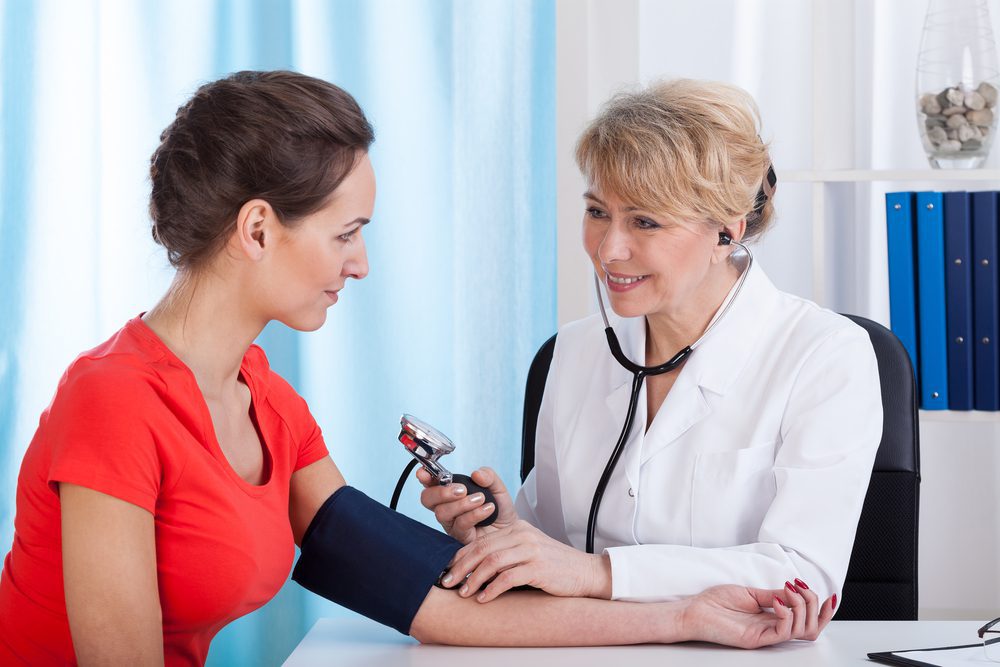
High blood pressure is a factor that can contribute to the formation of heart disease. You should take your blood pressure on a weekly basis. You can do this by using the blood pressure machine that is offered free of charge at your local drugstore.
Blood pressure refers to the force of blood flowing through your veins. Regular blood pressure is 120 or less, over 80 or less. If your blood pressure reading shows that it is either over 120 or over 180, you should be concerned. This means that you have high blood pressure, and you should contact your doctor in order to get properly medicated for your issue.
5. Nausea
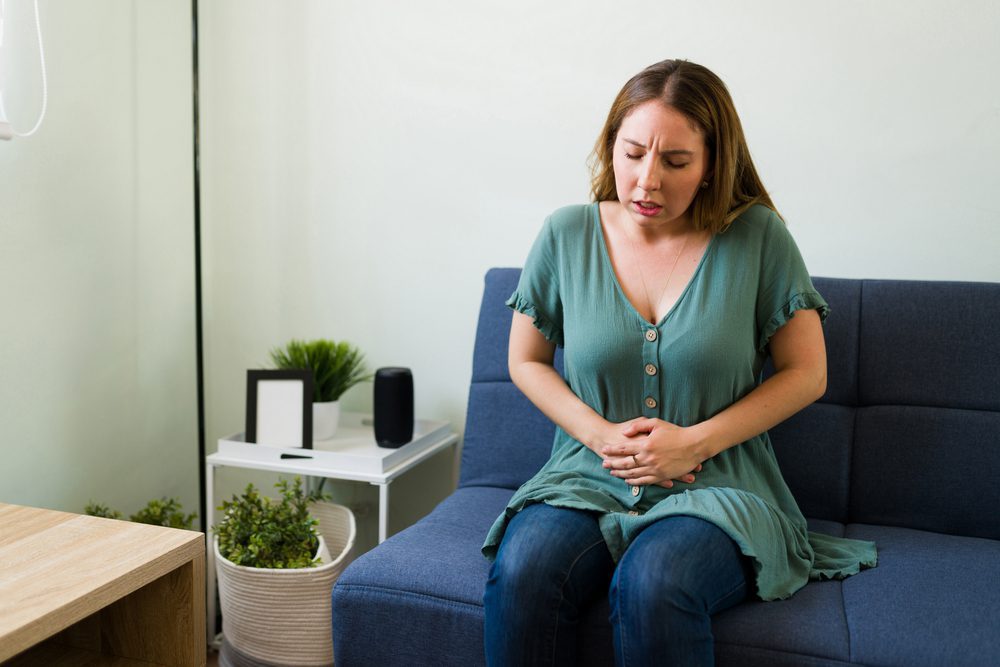
This is one symptom that can accompany heart disease. Nausea can also be caused by food poisoning or the flu. If you do not have food poisoning, and you do not have the flu, but you still have nausea on a regular basis, then you need to contact your doctor.
It is possible that this is happening in conjunction with heart palpitations, and you need to make sure that you are healthy. Heart palpitations can cause nausea in some cases. You need to make an appointment with your doctor in order to find out what the cause of your nausea is.
6. Jaw Soreness

You may experience a soreness in your jaw. However, if the soreness in your jaw feels that it is spreading from your heart all the way up to your jaw, you may have an underlying heart issue. You need to consult your doctor immediately if this happens, as it may be the sign of a heart attack.
Getting to a doctor as soon as possible when you experience small symptoms like this can help you to prevent the major effects of heart disease. This type of preventative measure can go a long way in preserving your health and your life.
7. Exhaustion

Do you have trouble waking up in the morning? Do you always feel tired no matter how much sleep you get? These are signs of exhaustion.
If you do a sedentary job, and you have no reason to be exhausted, this symptom may be an early sign of heart disease. Those who have heart disease often experience long bouts of exhaustion prior to being diagnosed with the cardiovascular disease. Make an appointment with your doctor immediately if your exhaustion is becoming worse or unmanageable. You will be glad that you contacted your doctor about the issue in the long run.
8. Swelling in Legs and Feet

Persistent swelling in your legs and feet can be the sign of heart disease. The swelling is the result of your body not being able to pump blood fast enough to certain areas, so the blood backs up. It is a sign that your circulation is not functioning properly.
In order for your body to be working in tip-top condition, your heart needs to be able to pump blood effectively to the areas that need blood. Go to the doctor if you’re experiencing swelling in your feet and legs, because this is a sign that your heart is not pumping blood properly to the extremities.
9. Dizziness
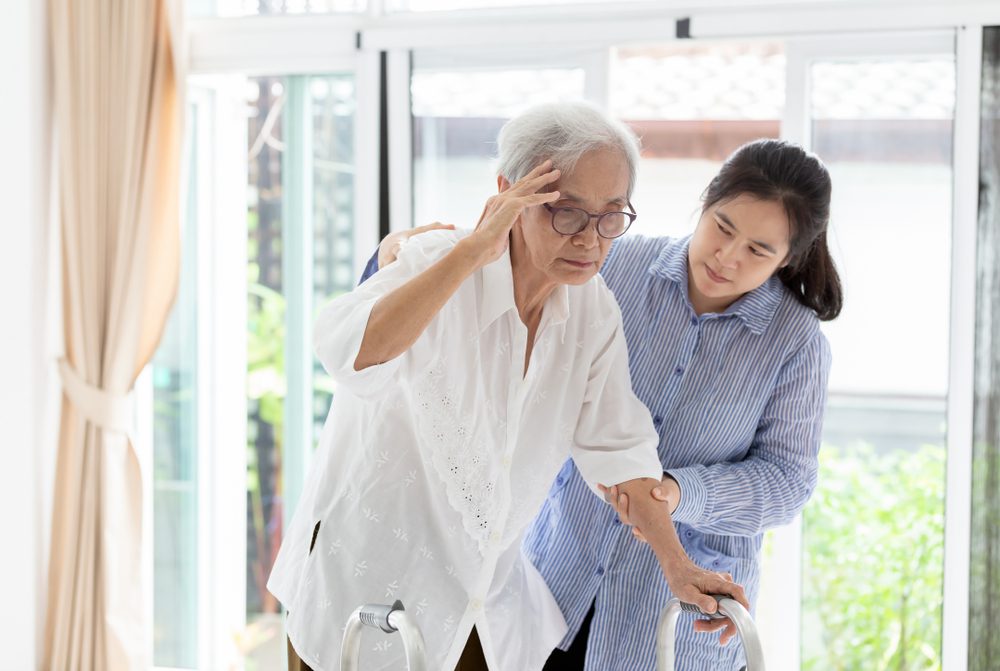
Do you ever go to stand up and then feel dizzy once you stood up? This is because blood has not flown to your head fast enough in the time that you stood up. While this is normal from time to time, it is concerning if it happens every time you stand up. Your body should be able to get blood to flow to your head quick enough each time you stand up.
If it doesn’t, that is a sign that your circulation is for or that your heart is not beating strong enough. Consult your doctor. He will help you find a resolution to the problem.
10. Low Blood Pressure
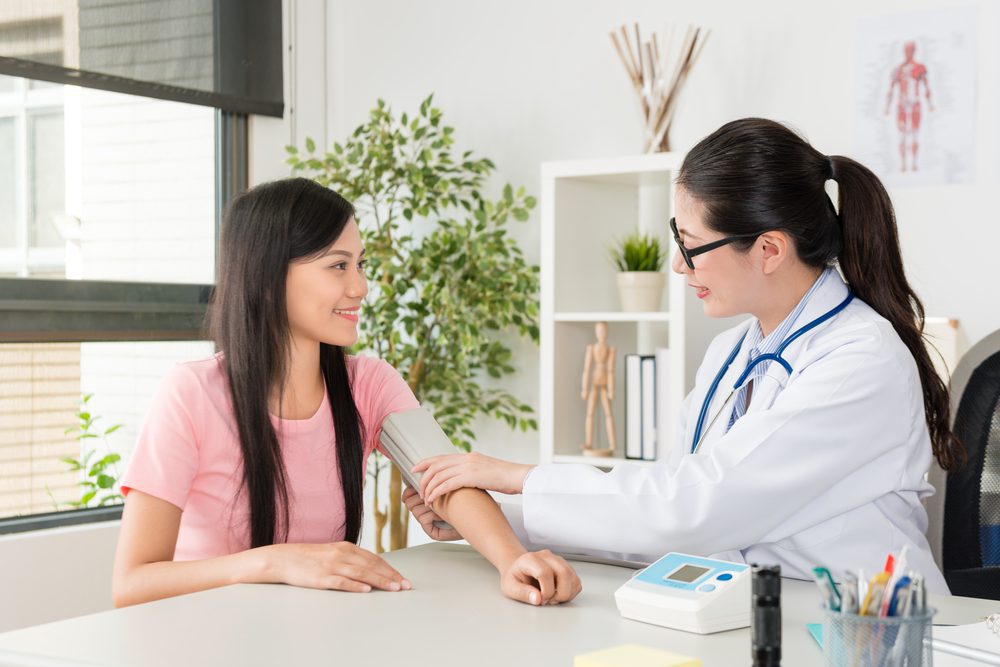
You should check your blood pressure on a weekly basis, using the machine that is free of charge at your local drugstore. If you find that your blood pressure is very far below 120 over 80, you have low blood pressure. Low blood pressure can be a risk factor for heart disease because it means that your body is not pumping blood fast enough or strong enough.
If you have low blood pressure, you need to consult your doctor. He will possibly give you medication to fix the issue. Low blood pressure can also lead to fatigue and lack of energy. You should talk to your doctor about this immediately.
11. Chest Pains
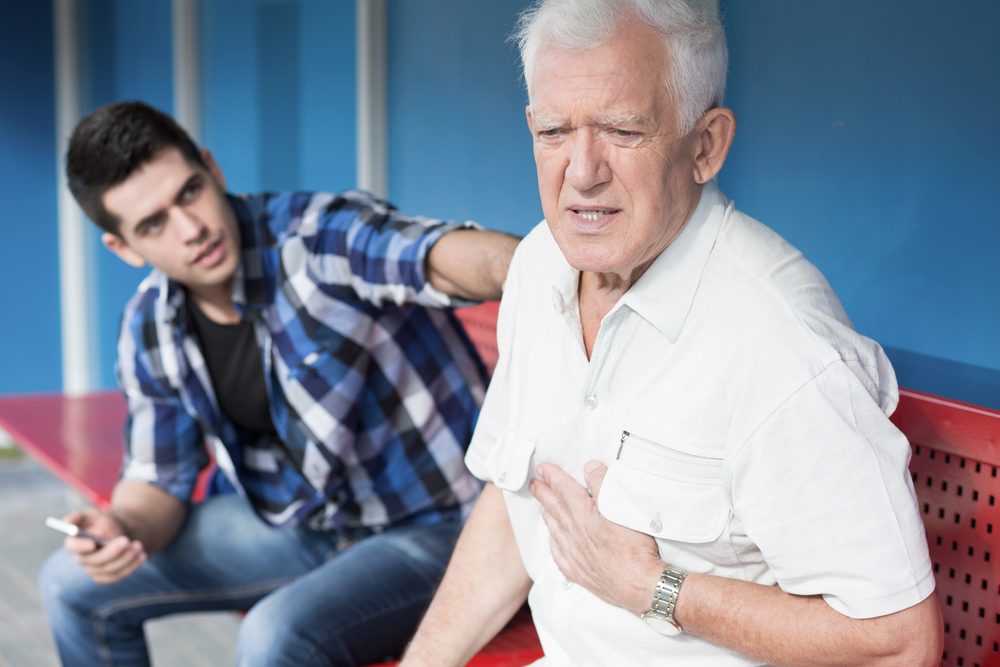
One sign that you may have heart disease is the presence of regular chest pains. If you have chest pains on a regular basis, it is likely that you have an issue with your heart. The chest pains will be located on the left side of your chest, right where your heart is.
You may experience a feeling of cramping or sharp pain. If you have these feelings, you really need to consult your doctor because there is no minor illness that causes chest pains. It is a precursor of heart disease. You need too bio the issue in the bud.
12. Shortness of Breath

Do you find that you’re short of breath in situations that you really shouldn’t be? Does taking a short walk exhaust you? If you find that you are struggling to catch your breath in situations that should not be exhausting, it is quite possible that you have heart disease. Shortness of breath is one of the major symptoms that you experience before heart disease is diagnosed.
This is because the blood flowing to your lungs is not being pumped fast enough or strong enough by your heart. You need to make an appointment with your doctor sooner than later in order to discuss this issue with him or her.
13. Weakness in Your Arms and Legs
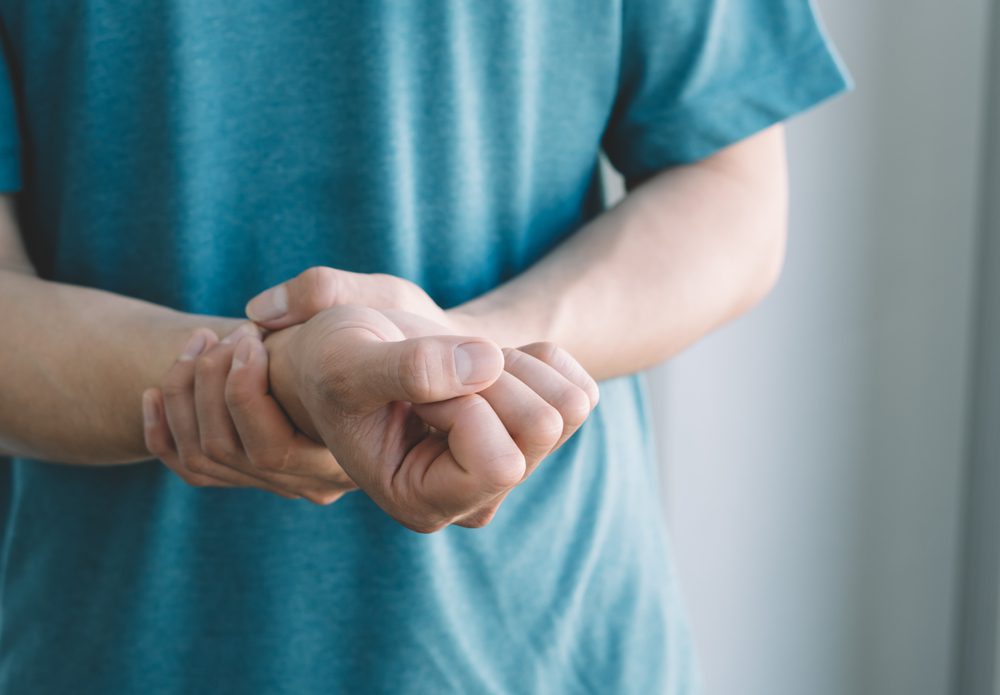
Do you find it difficult to perform exercise that requires you to bear a lot of weight on your legs or arms? This could be a sign that you have heart disease. Weakness in your extremities is caused by your heart’s inability to pump blood to your legs and arms.
If your heart is having trouble circulating blood to your legs and arms, you will have a feeling of tiredness in these extremities. You will have difficulty bearing weight on your legs or your arms, such as in doing exercises like push-ups or squats. This issue of weakness is tied to heart issues.
14. Inability to Exercise

Are you finding it difficult to do the exercises that you once found easy at the gym? This is a sign that you may have heart disease. It can occur because your heart does not pump blood well enough to the areas that you are exercising.
If you’re someone who regularly frequents the gym, this can be an embarrassing and disappointing occurrence. Undoubtedly, you’ll want to be able to get back to your normal exercise routine sooner than later. Consult your doctor as soon as you can so that he or she can make sure that this issue is not due to heart disease.
15. Leg Cramping

Some of your biggest arteries are in your legs. If you’re having cramping in your legs, it could mean that you are having heart disease symptoms. If these cramps occur when you are sitting down, they should be the most concerning to you.
This is because this means that your heart has trouble pumping blood even when you are resting. The inability of your heart to pump blood when you are at rest is a sign of impending heart disease. If you’re having cramps in the major arteries of your legs, you really need to see a doctor about the issue.
16. Pain that Spreads from Chest to Arm

If you experience a pain that spreads from your chest up to the outside of your arm and up your neck, you may be experiencing a symptom of heart disease. If this happens on a regular basis, you need to consult with your doctor. Your doctor is going to find out if this is caused by chest cramping.
If the cramping is caused by chest cramping, it is a sign of heart disease. Cramps in the chest can be associated with heart palpitations, and they need to be addressed properly. They need to be treated because it will help you to prevent heart attack.
17. Blue or Purple Tint to the Skin

If your skin has a blue or purple tint to it, it means that your blood is not receiving enough oxygen. The blood that is being pumped by your heart is not sufficiently full of oxygen that it is able to color your skin with a normal warm tone. This is caused by your heart performing irregularly, and you should go to the doctor about this immediately. This does not include bruising.
If your skin is turning blue or purple on its own, that is when you need to be concerned. It is a sign of heart disease and needs to be treated.
18. Tiny Bumps on the Skin
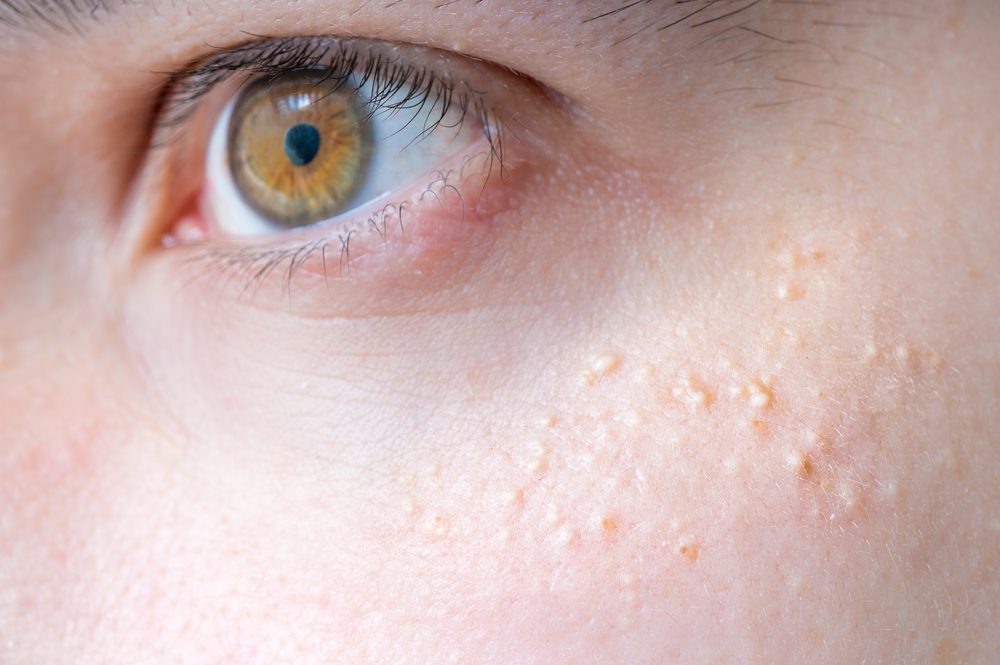
If they’re not pimples or blemishes, these tiny bumps can actually be deposits of fatty cholesterol on the skin. They are caused by high cholesterol. This cholesterol fat circulates throughout the body via the blood and then deposits in tiny bumps on your skin. This is no laughing matter and can actually be the sign of extreme issues with your cholesterol.
Your cholesterol level is strongly tied to your heart health. If your cholesterol is too high, you are at risk of heart disease and even of sudden heart attack. You need to speak to your doctor immediately so that you can get medicated to lower your cholesterol.
19. Nails Growing Downward
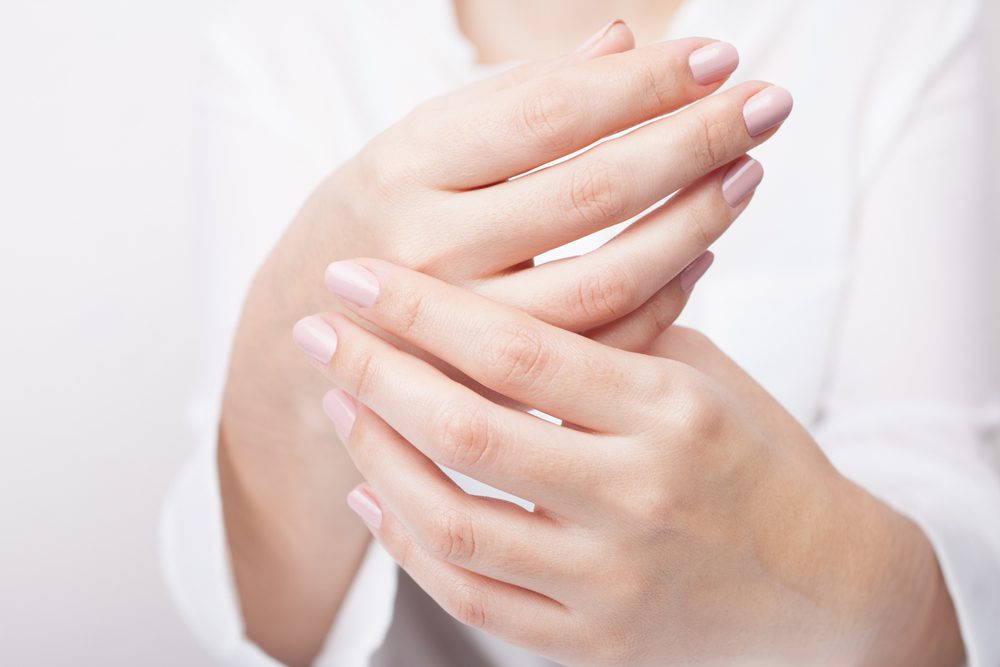
If your nails are growing downward when they grow out, this could be a sign of heart disease. It is typical of those who are in the early stages of heart disease. The science behind this symptom are largely misunderstood, but it is generally known that downward growing nails are a sign that you may have impending heart problems.
You should consult your doctor about this in order to make sure that it is normal and not a symptom. While there is a chance that this is simply a coincidence and your heart is perfectly healthy, more likely than not it is one of the most common symptoms of heart disease.
20. Brownish Blotches on the Skin
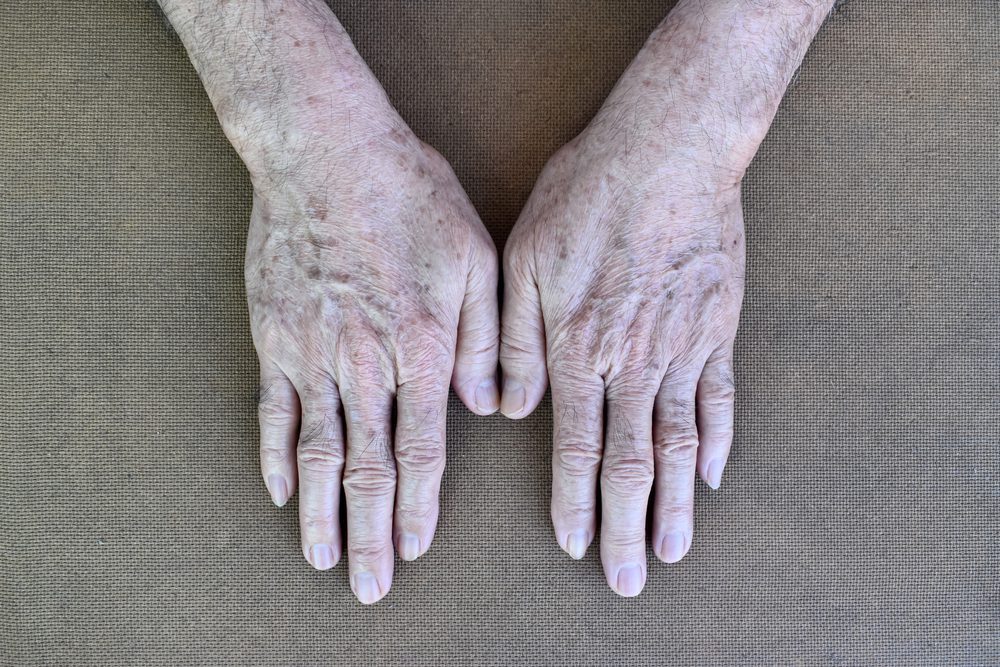
Brownish blotches on the skin can actually be a symptom of an infection in your heart. When you have an infection in your heart, you will develop these blotches that appear in irregular ways all over your arms and hands. They may also appear on your legs, stomach or the upper trunk of your body.
You need to be careful that if you see blotches like this, you go to your doctor immediately. He will be able to establish whether or not these are regular or whether they are caused by heart infection, by doing tests. If he finds they are due to heart infection, he will issue you antibiotics.
